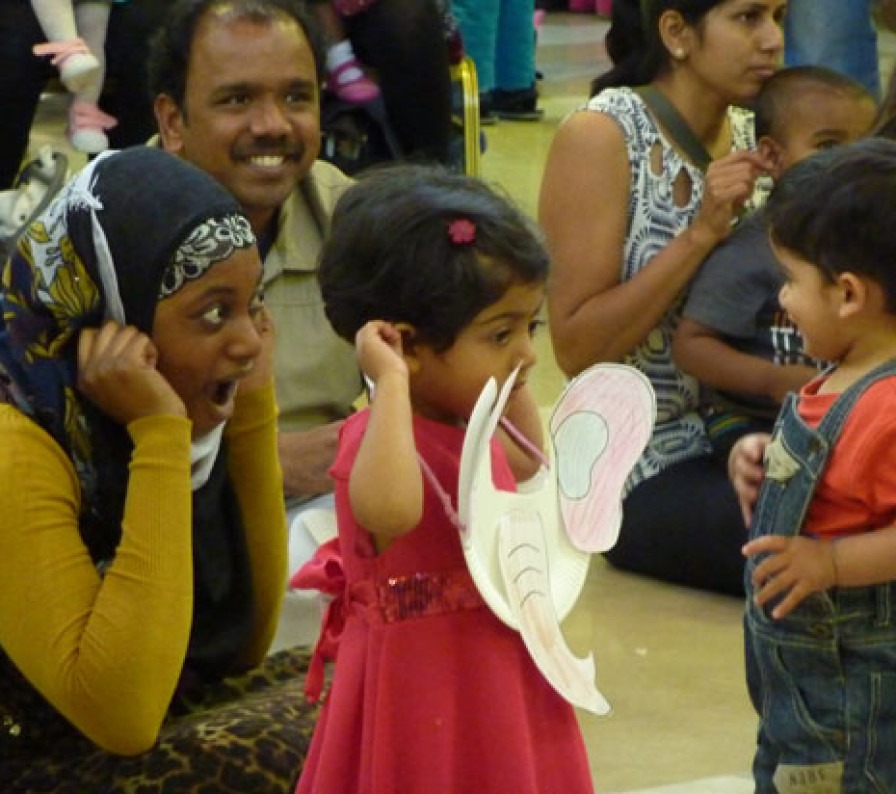Youth Music's new research suggests ways to engage 'hard-to-reach' parents

The National Foundation for Youth Music today published research exploring ways to engage ‘hard-to-reach’ parents in early years music-making (EYMM). The research was commissioned by Youth Music and undertaken by the Institute for Policy Studies in Education at London Metropolitan University after feedback from music projects involved in early years work suggested that they were struggling to engage certain parent groups. The report contains an Action Research Toolkit to help music leaders plan and reflect on their practice.
Matt Griffiths, Executive Director of Youth Music says:
“We know that much valuable work is being done by music leaders and early years practitioners. This study provides a number of useful and thought-provoking suggestions to increase engagement amongst ‘hard-to-reach’ parents. We want to see early years music-making being available to all children as we know the benefits include improved musical confidence, language and communication skills. We hope that this study will stimulate discussion and go some way towards identifying the ways we can reach out to families who might not otherwise engage with early years music-making services.“
Publication of the research is part of Youth Music’s renewed focus on EYMM, with the charity planning a breakfast seminar on the topic for music professionals, early years practitioners and other interested parties in January 2014.
The study confirms, as might be expected, that pragmatic issues such as cost, venue, timings and sociable features such as ‘chat’ times and refreshment breaks have an impact on engagement. Venues such as Children’s Centres were seen to be associated with the local implementation of government policy whereas libraries were viewed as more ‘neutral’ territories thus potentially increasing attendance. The authors highlighted the important inter-relationship between where a music session is located, the reputation it builds over time and how this becomes valuable local knowledge. Long-term approaches are therefore better than short-term interventions.
They also make the point that the issues related to engaging ‘hard-to-reach’ parents may not rest with ‘problem’ or ‘deficient’ parents or communities but might possibly reflect shortcomings in organisational planning and service delivery. It was felt that perhaps not quite enough work was being done to actually consult ‘hard-to-reach’ parents about their preferences for how early years music-making sessions could be run in a way that would attract their participation.
The study suggests that certain musical genres have cultural and class connotations. ‘Hard-to-reach’ parents interviewed for the study advocated popular music to teach their young children about society, although they saw this genre as complementary to, rather than a replacement of, traditional pre-school music. Their favoured musical genre might not be reflected in EYMM sessions where the music leader comes from a classically-trained background and draws on traditional nursery rhymes for material.
The authors recommended an approach which encourages parents to view themselves as ‘musical experts’ and consider music-making in the home as a valuable activity in their child’s development. Parent-led sessions, where they are encouraged to suggest songs they enjoy singing with their child, could help to make an early years group more inclusive and welcoming.
The study found that EYMM sessions can sometimes, unintentionally, become rigidly structured with implicit expectations and unspoken rules reflecting class and cultural behaviours that might put some ‘hard-to-reach’ parents off participating. Culturally inclusive provision was found to be central to engaging these parents in EYMM. The authors conclude that where early years services and music leaders are genuinely in touch with the local communities, the level and nature of engagement is greater.
They also found that music leaders were sometimes perceived as lacking experience in working with very young children, while early years practitioners were seen to lack musical confidence. Music leaders and early years professionals rarely shared their specific expertise and teaching methods with each other but the study suggests both could benefit from doing so. Often, the early years practitioners viewed the incoming music leaders as ‘more expert’ and were nervous about offering their (very useful) advice about working with young children.
The study also highlighted competing agendas occurring between family support professionals who are supporting EYMM sessions as a way of attracting ‘hard to reach’ parents into other family services and music leaders whose aim was to increase the mastery and appreciation of music for its own sake. The authors called for improved synergy between family services and music specialists.
Read the full Engaging ‘hard-to-reach’ parents in Early Years music-making report here.
Further information about Youth Music’s forthcoming seminar in January 2014 on the topic of early years music-making will be published on the Network in due course.

